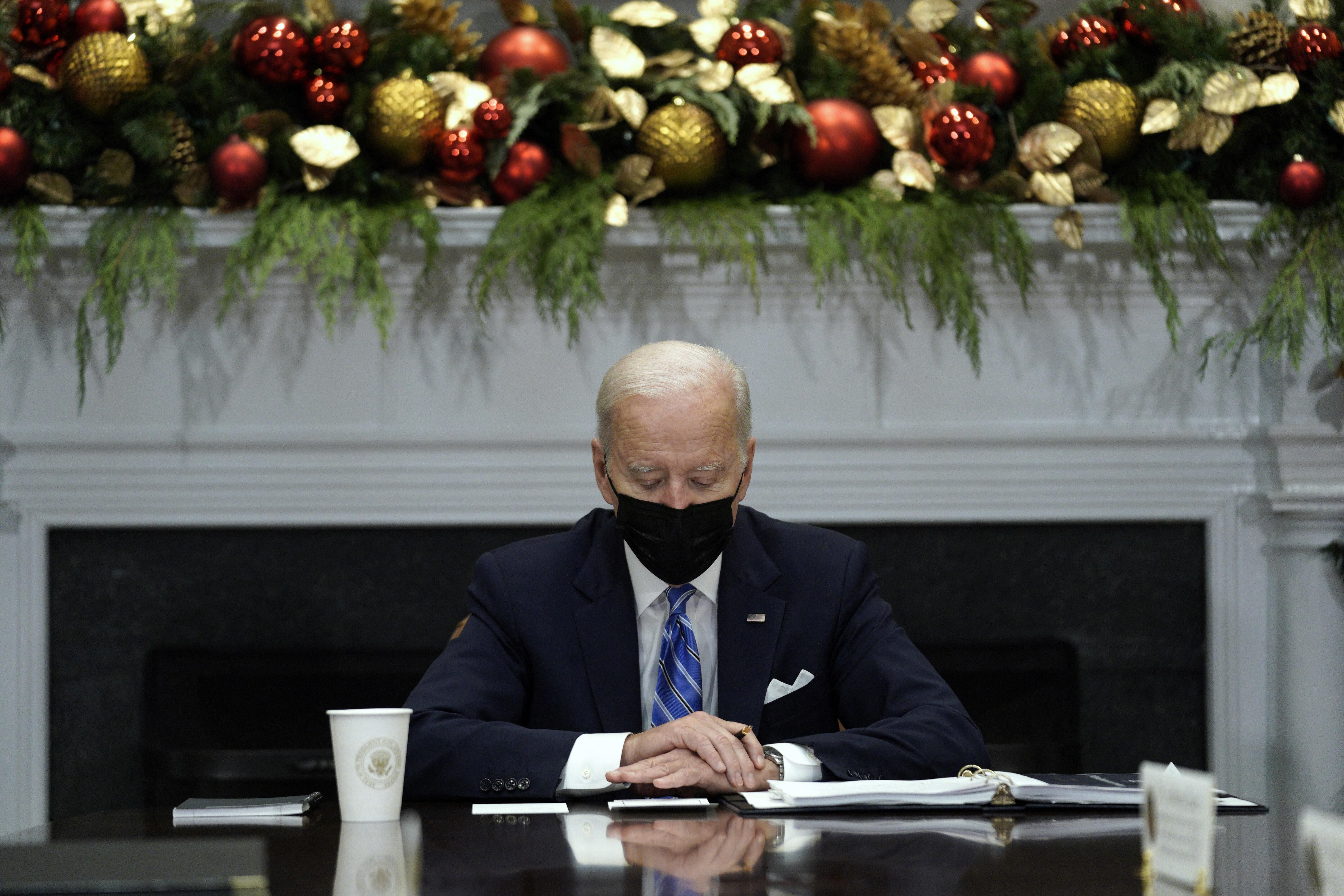What We’re Watching: Biden's omicron woes, a Tigrayan withdrawal, UK's new Brexit chief
What’s Biden omicron plan? The omicron variant has set up shop in the US, and COVID cases nationwide have risen 20 percent in the past two weeks. New York City is a hotspot with more than 20,000 new cases per day. President Biden will address the nation on Tuesday to detail the steps his administration will take to try to curb the spiraling outbreak. It’s already clear that he plans to double down on a messaging strategy centered on vaccines and boosters – having recently released a strongly worded warning that the unvaccinated should prepare for a “winter of severe illness and death.” But will Biden address — and rectify — more immediate challenges like testing capacity, which is buckling under the pressure of a surging caseload? What guidance will he give Americans about holiday travel just four days before Christmas? Biden promised to bring an end to the pandemic and get the US back to normal. With public confidence in his competency at a record low, public perception of his ability to manage this latest outbreak could make or break the Democratic Party’s electoral prospects in 2022 and beyond.
An opening for peace in Ethiopia? Tigrayan militants who have spent the past year at war with the central government say they have now withdrawn from several regions beyond their home territory. The move, coming after recent gains by Ethiopian forces, could open the way to fresh ceasefire talks. The war, which started in November 2020 over the Tigray region’s refusal to postpone elections during a power struggle with Prime Minister Abiy Ahmed, has claimed thousands of lives, displaced hundreds of thousands of people, and led to alleged war crimes committed by both sides. In recent months, battlefield fortunes have swung wildly — at one point the Tigrayan People’s Liberation Front were within striking distance of the Ethiopian capital, Addis Ababa, but government forces have taken back swaths of territory in the past few weeks. The TPLF says it hopes that pulling its forces back will encourage the international community to push for negotiations. The Ethiopian government, for its part, is facing stricter US economic sanctions in the new year unless progress toward peace can be made.
The UK's new Brexit minister. British PM Boris Johnson's tailspin continues. After a week of scandal over government violations of its own COVID lockdown protocols, a Tory rebellion against his new COVID restrictions, and his Conservative Party's loss of a parliamentary seat it had held for most of the past 200 years, Johnson’s Brexit Minister, Lord Frost, resigned. Frost, a hardline Brexiteer who has led post-Brexit negotiations with the EU, had reportedly been at odds with Johnson over taxes (too high) and environmental policy (too ambitious), but the last straw was Johnson's imposition of new measures to contain the pandemic. Frost's replacement will be current Foreign Secretary Liz Truss, who is popular within Tory circles and is seen as a potential successor to Johnson, particularly if he should stumble further next year. But handing her the Brexit portfolio is a challenge and a half: the pragmatic and diplomatically inclined Truss will need to resolve the ongoing dispute with the EU over the status of Northern Ireland — without alienating the Tory's hard Brexiteer right wing, on the one hand, or provoking a crippling cross-channel trade war on the other.
